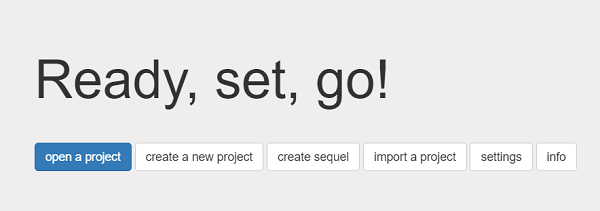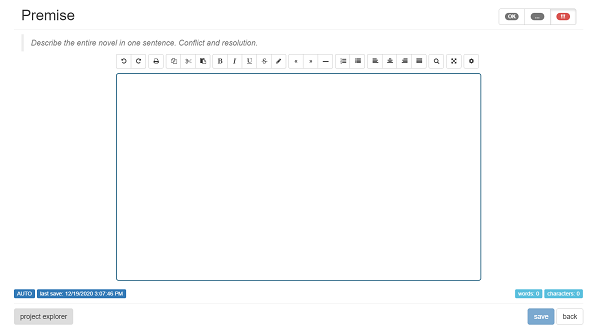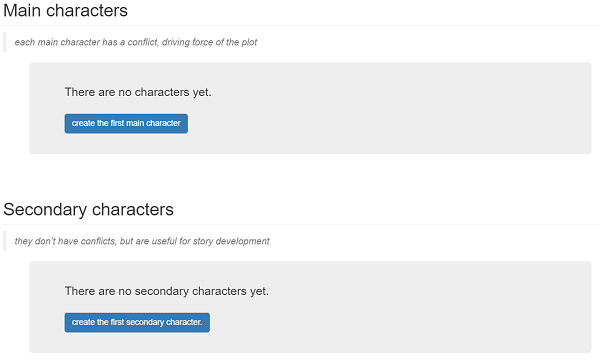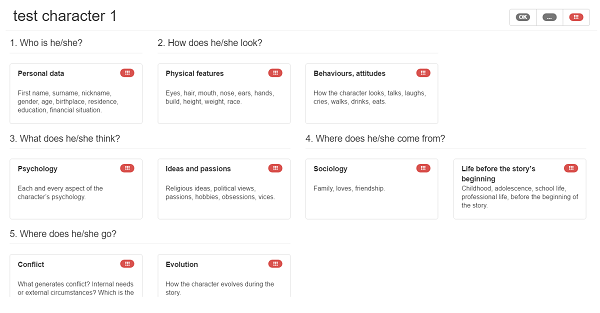Creative writing can be difficult. Writer’s block can last for months at a stretch. And as much as one may argue that a story’s idea is the main thing, the environment around which it is created plays an equally important role, if not bigger. Recently, I came across a tool that can help all budding writers with just that: finding a place to bring their thoughts together and construct something around them. Today, I’ll be reviewing Bibisco.
Bibisco is a free Novel writing software that can help writers organize chapters and scenes, manage revisions, and export novels in PDF, docx, and epub.
Free Novel writing software
Bibisco is an open-source software used to write novels. The first thing that will appear on your screen once you launch Bibisco is a tray of options allowing you to either start a new project or import a project already in progress.
On a side note, Bibisco’s latest version is based on a technology different from its previous version; the former runs on node.js, while the latter is based on Java. Because of this, creators shouldn’t leave their projects on the previous version midway and import them to the new version since they won’t be compatible. You can also start writing the sequel of previous work or continue with your earlier project(s).
Bibisco Review

On the home screen of Bibisco you get to name your novel and the language in which you want to write it. Bear in mind that once set, you can’t change the language you have selected. On the top of the screen, you get a panel of options like architecture, locations, characters, etc. each serving a key function in novel writing. Let’s go over them one by one.
Project
Under Project, you’re given certain tips you can go through before starting your write-up. These include having a deep relationship with your characters, defining the Fabula, and establishing continuity and points of view, among other things. It is just the basic, elementary stuff to remember while working on a story. This is where you get started with your project.
Architecture
This is one of the key things to be kept in mind while drafting a novel: its structure. This feature allows you to construct your thoughts and help present them meaningfully. Herein, you get an option to define your novel’s premise (a brief account of what it is about), the fibula (the various events that transpire sorted in either a chronological or logical manner), the setting (a brief account of the scenarios and situations under which the story takes place) and some notes which would help in creating linkages.
The notes option comes with Bibisco’s Supporters edition, which works around a Pay-As-You-Wish model. Our review, however, is restricted only to the free version. You can also set up Narrative strands in context to the various situations in your novel.
Characters

As the name suggests, you get to construct your characters here. Each novel has a set of main characters and a set of secondary characters, which is what this seeks to help out in too. After you enter the name of a primary character, you get to design it in very fine detail.

This part really excited me because it helps you establish great details about your characters and delve deep into their attributes, from their birthplace and financial conditions to their political ideologies and inclinations to their lives before the story takes place. You can also add images for your character.
Analysis
As you head towards the end of drafting an overview of your novel, you get to analyze your plot points, the length of your chapters, your location distributions, character distributions, the way the points of view come into play, etc.
Certain features like ‘timeline’, ‘search’, and ‘objects’ are a part of the Supporters package only. It is, in fact, a rather extensive pack, the Supporters edition, and from what it shows on paper, it seems to be worth the extra buck.
Bibisco is distributed by Gumroad and you can download it from bibisco.com.
In conclusion, I feel that Bibisco bundles up a nice set of features worth taking advantage of when writing a novel. Sure, this isn’t the only thing one would need to craft a very good novel, but it can contribute meaningfully.
Leave a Reply